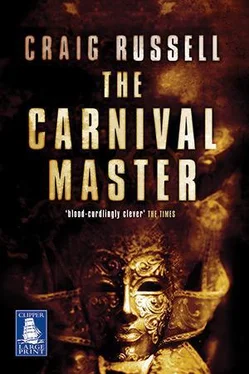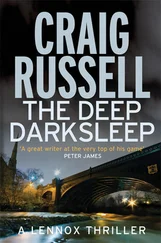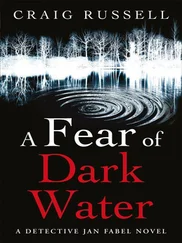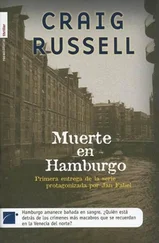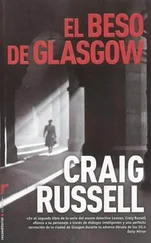Craig Russell - The Carnival Master
Здесь есть возможность читать онлайн «Craig Russell - The Carnival Master» весь текст электронной книги совершенно бесплатно (целиком полную версию без сокращений). В некоторых случаях можно слушать аудио, скачать через торрент в формате fb2 и присутствует краткое содержание. Жанр: Триллер, на английском языке. Описание произведения, (предисловие) а так же отзывы посетителей доступны на портале библиотеки ЛибКат.
- Название:The Carnival Master
- Автор:
- Жанр:
- Год:неизвестен
- ISBN:нет данных
- Рейтинг книги:3 / 5. Голосов: 1
-
Избранное:Добавить в избранное
- Отзывы:
-
Ваша оценка:
- 60
- 1
- 2
- 3
- 4
- 5
The Carnival Master: краткое содержание, описание и аннотация
Предлагаем к чтению аннотацию, описание, краткое содержание или предисловие (зависит от того, что написал сам автор книги «The Carnival Master»). Если вы не нашли необходимую информацию о книге — напишите в комментариях, мы постараемся отыскать её.
The Carnival Master — читать онлайн бесплатно полную книгу (весь текст) целиком
Ниже представлен текст книги, разбитый по страницам. Система сохранения места последней прочитанной страницы, позволяет с удобством читать онлайн бесплатно книгу «The Carnival Master», без необходимости каждый раз заново искать на чём Вы остановились. Поставьте закладку, и сможете в любой момент перейти на страницу, на которой закончили чтение.
Интервал:
Закладка:
Contrary to its depiction in American movies, surveillance from a car was not always the best way of keeping tabs on someone’s movements. Most of the time people would walk by a car and not notice anyone sitting in it, but once they did they would notice every time they passed. Maria was dressed in her grungy clothes and she had slumped slightly in the driver’s seat so that her head did not project above the headrest. Her main disadvantage was that she had no photograph of her surveillance target. She didn’t even have much of a description of Viktor from Slavko to go on. At about eleven-thirty an Audi pulled up and a big-built man of about forty went into the apartment building. Maria noted down the time and the make, model and licence number of the car. She had brought a small digital camera with a half-decent zoom, and she took a photograph of the man as he went into the building, then again as he came out with a younger man. Maria could tell that this was not her man and she didn’t follow the Audi when he drove off. She settled back down. The clothes she had bought were too big for her, but they were warm and comfortable. More importantly, the body she hated became lost in their bagginess.
It was about twenty past noon when Viktor pulled up. Maria was in no doubt that this was Viktor. He had ‘organised crime, lower echelons’ written all over him – his clothes, his car. It sometimes felt as if Vasyl Vitrenko and his lieutenants were spectres, without form. It had only been at the very end of a long and detailed investigation that Fabel and Maria had actually come face to face with Vitrenko, and then only for a few deadly minutes. It was through people like Viktor that the Vitrenko organisation had form and visibility. Conspicuous visibility as far as Viktor was concerned. He was a large man, over two metres in height. He wore a long black leather coat that strained to contain his massive shoulders and his hair was dyed bright blond. The vehicle he double-parked outside the apartment block was a vast 1960s American ocean liner of a car. Maria took several photographs and made her notes. She guessed that Viktor would not be in the apartment building long, so she turned the key in the ignition of her own car and readied herself.
As it happened, Viktor was in the building for nearly half an hour. A delivery van came along the street and could not pass Viktor’s Chrysler and the driver blasted his horn several times impatiently. When Viktor did eventually emerge, carrying a package bound in black plastic, the driver leaned from his cab window and berated the Ukrainian loudly. Viktor ignored him completely, walked round the Chrysler, opened the cavernous trunk and dropped the package in. Then, in the same unhurried manner, he walked over to the delivery van, wrenched the door open, pulled the driver from his cabin and head-butted him with such force that the back of the man’s head slammed into the side of the van and he slid unconscious onto the road. Viktor calmly took a handkerchief from his pocket and wiped the blood that had splashed on his face, walked back to the car and drove off to where the narrow residential street joined the main road, the Weichselring, that looped around Chorweiler like a restraining lasso.
‘That’s my boy,’ Maria said to herself. ‘You’re definitely Viktor.’ She pulled out and realised that she now had the same problem that the van driver had had: the van now prevented her from following Viktor’s car. She looked at the van driver lying crumpled on the ground. In the same situation in Hamburg she would have given up the pursuit and made sure that the driver was okay. But this wasn’t Hamburg. Slamming the Saxo into reverse, Maria cut up a side street. On the way in she had driven up Mercatorstrasse, the main route into Chorweiler and guessed that Viktor would be heading along Weichselring in its direction.
She took two rights, which she reckoned would bring her out onto the Weichselring. It didn’t. She cursed and looked wildly around for some landmark that would give her a clue to which direction she should take. She floored the accelerator and drove at high speed towards where the street swung left. She took the next right and saw the traffic on Mercatorstrasse. Maria had bypassed Weichselring completely. She reached the end of the street and was stopped at a red light. She scanned the Mercatorstrasse in both directions but could see no sign of Viktor’s distinctive Chrysler. The lights changed but she still had no idea which way to turn and didn’t move off. A car had come up behind her and the driver sounded his horn. She looked in her mirror to mouth a curse. A colossal American car with a colossal Ukrainian driver. She held her hand up in apology and pulled out onto Mercatorstrasse, turning left and hoping that Viktor would do the same. He did. Maria had no idea how she had managed to beat Viktor to the junction, but now the target she had intended to follow was following her. Her mouth became dry at the thought that it might not be coincidence but intention. Could he have spotted her outside the apartment block? Viktor did not look to Maria as if he was the most highly trained of Vitrenko’s goons. He was all thug and no soldier, she thought. But, there again, most Ukrainian and Russian gangsters had a Spetsnaz background and the way Viktor had dealt with the van driver had certainly been expert if a little unsubtle. She pulled up at the next set of traffic lights, looking in her mirror to check if Viktor was indicating a turn. He wasn’t, so she went straight on. He followed. Up ahead there were a couple of free parking bays. Maria indicated and pulled into one. Viktor drove by without looking in her direction and Maria let another couple of cars pass before pulling back out. She sighed with relief. As far as she could see the anonymity of her car had protected her from detection and she fixed her attention on the ridiculous tail fins of Viktor’s 1960s Chrysler, three cars ahead of her.
They drove south through the city for about fifteen minutes without going back onto the A57 autobahn that had brought her to Chorweiler. Viktor made two stops to collect, both in run-down areas. After the second stop Maria became concerned when she found herself immediately behind Viktor, the two previously intervening cars having turned off at different junctions. She held back as much as she could, but whenever they stopped at traffic lights she ended up bumper to bumper with Viktor. If he looked in his rear-view mirror, he would see her face clearly. She tugged her woollen hat further down over her brow. Maria no longer had a clue where she was, but she tried to make a mental note of the road endings she passed. They were still within the city but the architecture changed from residential to industrial and she became painfully aware that there were fewer cars on the road, making her tailing more conspicuous. Eventually they passed under the autobahn and came into another residential area indicated by a yellow Stadtteil sign as Ossendorf. She noted the name of the road they passed along, Kanalstrasse, and followed Viktor as he turned along a street lined with four-storey apartment blocks. Now her and Viktor’s were the only cars driving along it. Maria decided to break off rather than risk Viktor identifying her as a tail. She took the next on the left, did a U-turn to face the road she had left and parked at the kerb.
Maria cursed under her breath. She took the Cologne street plan from the glove compartment and checked Ossendorf. Her instincts had been right. This was a residential area and not a short cut to anywhere else. Either Viktor lived here or he was doing another pick-up. She would wait half an hour. If it was another pick-up, then he would probably come out of the area before the half-hour was up, and more than likely by the same way he had come in. And if she were unsuccessful either way, then she would watch Slavko’s apartment every day and pick up his trail again.
Читать дальшеИнтервал:
Закладка:
Похожие книги на «The Carnival Master»
Представляем Вашему вниманию похожие книги на «The Carnival Master» списком для выбора. Мы отобрали схожую по названию и смыслу литературу в надежде предоставить читателям больше вариантов отыскать новые, интересные, ещё непрочитанные произведения.
Обсуждение, отзывы о книге «The Carnival Master» и просто собственные мнения читателей. Оставьте ваши комментарии, напишите, что Вы думаете о произведении, его смысле или главных героях. Укажите что конкретно понравилось, а что нет, и почему Вы так считаете.
